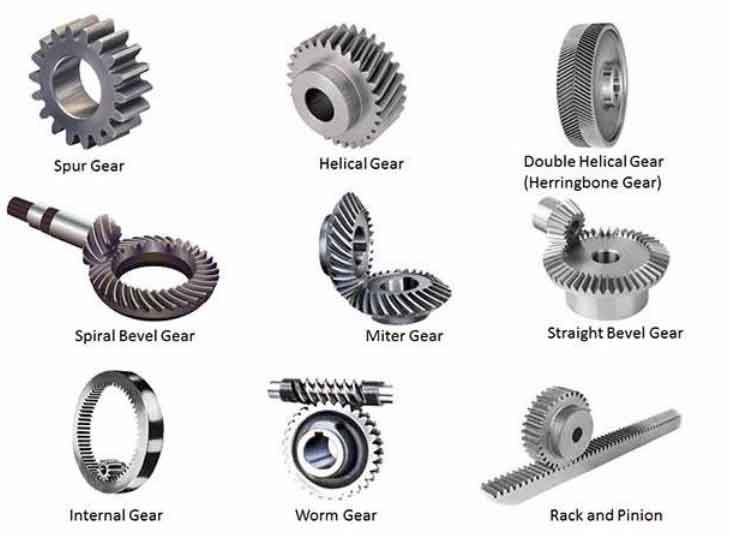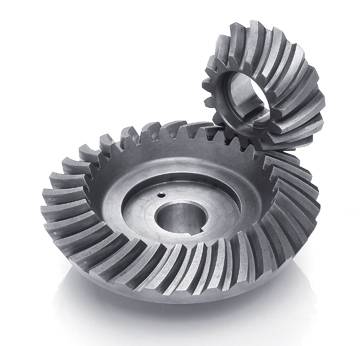Product Description
MW High Quality M1-M25 Spiral Straight Bevel Gear
We can make standard gear and special gear as per drawing or sample
The gear material can be carbon steel, stainless steel, aluminum, copper, brass and so on.
We can do heat treatment and surface treatment such as case harden, zinc plating , nick plating , chrome plating, powder coating, blacken and so on.
Our process includes tooling fabrication, stamping, deep drawing, punching, spinning, laser cutting, bending, seamless welding, machining and assembly.
Application: Electronic/Appliance/Auto/Industrial equipment metal stamping hardware parts
Due to our CHINAMFG in dealing with clients, understanding of their needs and overriding sense of responsibility toward filling ordering requirements, we have obtained the trust of buyers’ worldwide. Having accumulated precious experience in cooperating with foreign customers, our products are selling well in the American, European, South American and Asian markets. Our products are manufactured by modern computerized machinery and equipment. Meanwhile, these are manufactured according to high quality standards, and complying with the international advanced standard criteria.
Quality and credit are the bases that make a corporation alive. We will provide best services and high quality products with all sincerity. If you need any information or samples, please contact us and you will have our soon reply.
| Application: | Industry |
|---|---|
| Hardness: | Hardened |
| Manufacturing Method: | Cut Gear |
| Toothed Portion Shape: | Bevel Wheel |
| Material: | Alloy Steel |
| Type: | Circular Gear |
| Customization: |
Available
| Customized Request |
|---|

What is the role of spiral bevel gears in drivetrain systems?
Spiral bevel gears play a crucial role in drivetrain systems, contributing to power transmission, torque redirection, and overall performance. Here’s an overview of the role of spiral bevel gears in drivetrain systems:
- Torque Transfer: Spiral bevel gears are responsible for transmitting torque between the engine and the drivetrain components. They are commonly used in vehicle differentials and transfer cases to distribute torque to the wheels or other output shafts. Their precise tooth meshing ensures efficient power transfer, allowing the vehicle to move and effectively utilize engine power.
- Torque Redirection: In drivetrain systems, spiral bevel gears are utilized to redirect torque and change the direction of power flow. For example, in rear-wheel drive vehicles, the spiral bevel gears in the differential redirect torque from the driveshaft to the rear wheels, enabling the vehicle to turn smoothly. Similarly, in four-wheel drive or all-wheel drive systems, spiral bevel gears in the transfer case redirect torque between the front and rear axles, providing traction and improved handling on various terrains.
- Gear Ratio Selection: Spiral bevel gears can be designed with different gear ratios to optimize vehicle performance. By choosing appropriate gear ratios, drivetrain systems can provide the desired balance between torque, speed, and efficiency. Spiral bevel gears allow for a wide range of gear ratio options, enabling manufacturers to tailor the drivetrain system to specific vehicle types and applications.
- Noise and Vibration Control: Spiral bevel gears are designed to minimize noise and vibrations in drivetrain systems. The helical tooth profile of spiral bevel gears allows for smoother tooth engagement, reducing gear meshing noise and vibration levels. This enhances driving comfort and reduces wear and tear on the drivetrain components.
- Compact Design: Spiral bevel gears offer a compact and space-efficient design, making them suitable for integration into drivetrain systems with limited space. Their compactness allows for efficient power transfer while optimizing the packaging of the drivetrain components within the vehicle chassis.
- Durability and Reliability: Drivetrain systems are subjected to demanding operating conditions, and spiral bevel gears are designed to withstand these challenges. They are engineered to provide durability and reliable performance under high loads, ensuring the drivetrain system’s longevity and minimizing the need for frequent maintenance.
Overall, spiral bevel gears play a vital role in drivetrain systems by enabling torque transfer, torque redirection, gear ratio selection, noise control, compact design, and ensuring durability. Their precise and efficient operation contributes to the performance, efficiency, and reliability of various vehicles, ranging from passenger cars to heavy-duty trucks and off-road vehicles.

How do you calculate the gear ratio in a spiral gear system?
The gear ratio in a spiral gear system can be calculated by comparing the number of teeth on the driving gear (pinion) to the number of teeth on the driven gear (gear). The gear ratio represents the ratio of the angular velocity (speed) of the driving gear to the angular velocity of the driven gear. Here’s the formula to calculate the gear ratio:
Gear Ratio = Number of Teeth on Driven Gear / Number of Teeth on Driving Gear
For example, consider a spiral gear system where the driving gear (pinion) has 20 teeth, and the driven gear (gear) has 40 teeth. The gear ratio can be calculated as follows:
Gear Ratio = 40 / 20 = 2
In this example, the gear ratio is 2, which means the driven gear will rotate at half the speed of the driving gear. This calculation assumes that the gears have the same module (gear size) and that there are no additional gear stages in the system.
It’s important to note that the gear ratio determines the speed and torque relationship between the driving and driven gears. A gear ratio greater than 1 (e.g., 2, 3, etc.) indicates a reduction in speed and an increase in torque, while a gear ratio less than 1 (e.g., 0.5, 0.75, etc.) indicates an increase in speed and a reduction in torque.
When working with spiral gears, it’s essential to consider the helix angle and axial thrust in addition to the gear ratio to ensure proper gear design and performance.

What are spiral gears and how are they used in machinery?
Spiral gears are a type of cylindrical gears with teeth that are curved in a spiral pattern. Unlike straight-cut gears, which have teeth that are parallel to the gear axis, spiral gears have teeth that are angled or helical. This helical tooth arrangement provides several advantages in terms of performance and noise reduction.
Spiral gears are commonly used in machinery for various applications due to the following reasons:
- Smooth and Quiet Operation: The helical tooth arrangement of spiral gears enables gradual tooth engagement, resulting in smoother and quieter operation compared to straight-cut gears. The angled teeth allow for gradual contact, reducing noise and vibration during gear meshing.
- Increased Load Capacity: The helical tooth design of spiral gears distributes the load over multiple teeth, increasing the load-carrying capacity. This makes spiral gears suitable for applications that require high torque transmission and heavy-duty operations.
- Improved Efficiency: The helical tooth arrangement of spiral gears helps in minimizing sliding friction between the teeth. This results in a higher level of efficiency compared to straight-cut gears, as there is reduced power loss due to friction during gear operation.
- Axial Thrust Compensation: Spiral gears can be designed with opposite helix angles on mating gears, which helps in canceling out the axial thrust generated during gear meshing. This feature eliminates the need for additional thrust bearings, simplifying the gear design and reducing complexity.
- Versatility: Spiral gears can be manufactured in various configurations, including spur, helical, and double helical designs. This versatility allows for their application in a wide range of machinery, including automotive systems, industrial equipment, and power transmission systems.
In machinery, spiral gears are commonly used in applications that require smooth operation, high load capacity, and efficient power transmission. Some examples include gearboxes, automotive differentials, machine tools, and heavy-duty industrial machinery.
Overall, the unique tooth geometry of spiral gears makes them a preferred choice in many machinery applications, offering improved performance, reduced noise, and enhanced load-carrying capabilities.


editor by CX 2023-11-29